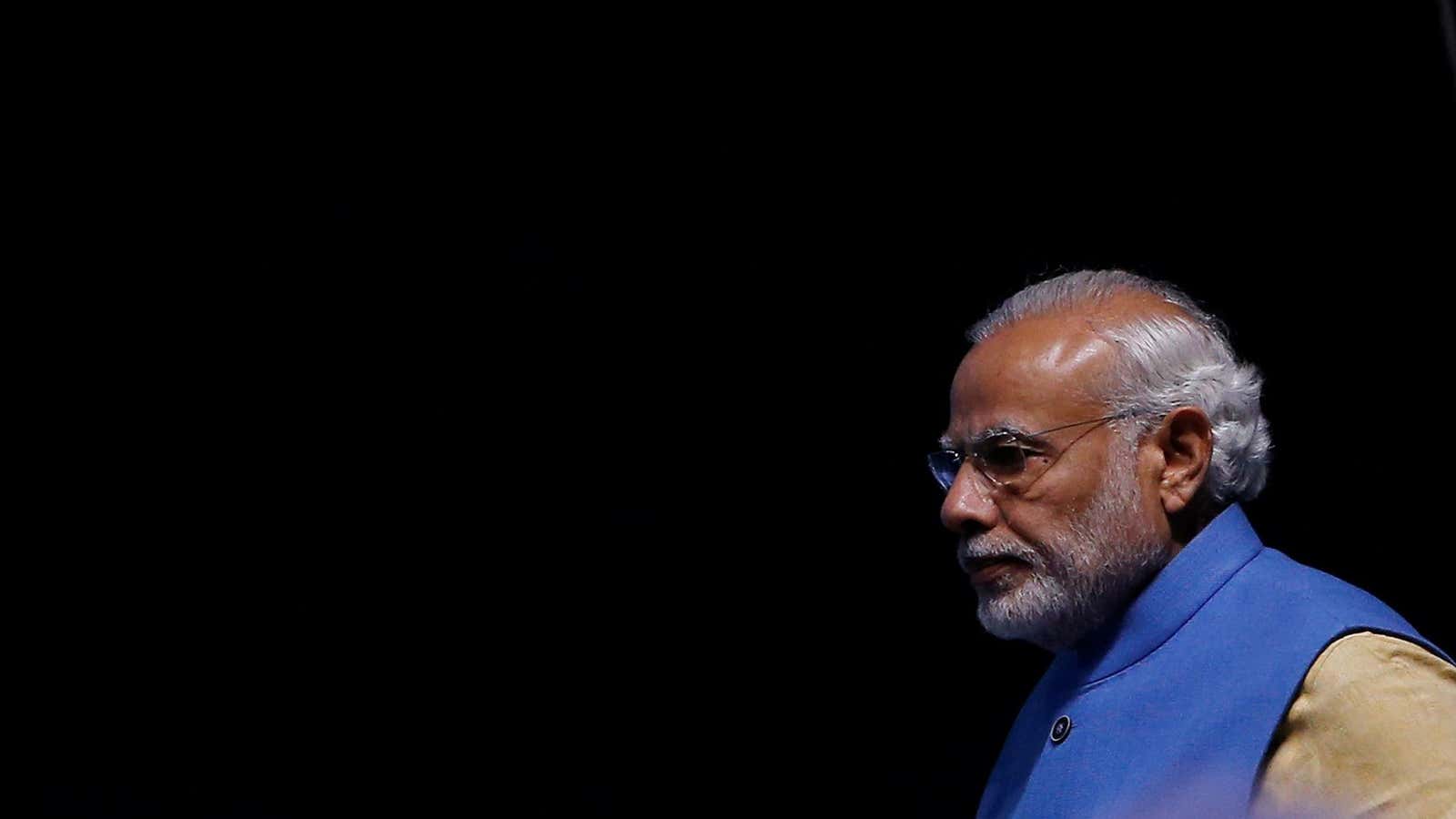The internecine battle within India’s top investigative agency has come into full public view in spectacular fashion.
On Oct. 22, the Central Bureau of Investigation (CBI) raided its own headquarters in an investigation against its second-in-command, special director Rakesh Asthana in a bribery case. Twitter responded with #CBIvsCBI.
In the wee hours of Oct. 24, embarrassed by the scandal, prime minister Narendra Modi’s government sent on leave not only Asthana, but also his rival and boss, CBI director Alok Verma. The government has given the interim charge of the CBI to M Nageshwar Rao, who until now was the agency’s joint director.
The legal sanctity of the move is uncertain as the CBI director’s tenure has constitutional backing, and is slated to only end in January next year.
India’s supreme court will hear arguments on the validity of the government’s decision on Oct. 26, following a plea by Verma challenging the move.
How it all started
Under Verma’s charge, the CBI filed a complaint against Asthana on Oct. 21 for allegedly taking bribes from Sathish Sana, a Hyderabad-based businessman whom the agency was investigating in a money-laundering case.
On Oct. 4, Sana had confessed before a magistrate court that he bribed officials Rs2.95 crore ($402,000) through middlemen to get the CBI off his back. He said the total ask was Rs5 crore, an amount he intended to pay eventually.
Sana added that though he had never met Asthana, one of the middlemen—Manoj Prasad, a businessman in Dubai—told him that the CBI officer was among those pocketing the bribe. According to the complaint, Sana decided to report the transaction when the agency continued sending him notices even after he had coughed up more than half the bribe.
It was a day after filing Sana’s complaint that the agency raided its own premises and arrested Devender Kumar, a CBI officer in Asthana’s team. Asthana, however, has managed to get court protection from arrest until next week.
Earlier this month, Asthana also wrote to the Central Vigilance Commission (CVC), which oversees the administrative affairs of the CBI, claiming that Verma and other agency officials are trying to frame him. In another letter to the government in August, Asthana said that Verma’s name has cropped up for committing illegal acts including corruption in 10 cases. Incidentally, the letter says that during his interrogation, Sana had admitted to bribing Verma instead.
The feud has caused the government enough discomfort that Modi met with Verma on Oct. 21 in an unsuccessful bid to defuse the situation.
Enter government
Both Verma and Asthana have friends in high places—Verma reportedly enjoys the backing of national security adviser Ajit Doval and Asthana of Modi’s additional principal secretary PK Misra.
However, the prime minister himself is perceived to be close to Asthana, who served as a top police official in Gujarat when Modi was chief minister of the state. Asthana led the team that investigated the 2002 Godhra train burning, which sparked the Gujarat riots.
In October last year, Verma had opposed the government decision to appoint Asthana as CBI’s special director. In a note to the CVC, he had said Asthana was unfit for the job because a diary found on the premises of Sterling Biotech, a pharmaceutical company in Gujarat being investigated for loan defaults, mentioned that he was paid a bribe of Rs3.88 crore. The CVC had ignored the allegation as unverifiable and cleared Asthana’s appointment to the agency.
Modi’s opposition meanwhile is calling out his meeting with Verma as an attempt to influence the probe against Asthana.
“To maintain the institutional integrity of CBI… purely as an interim measure, both Alok Verma and Rakesh Asthana will sit out by going on leave,” India’s finance minister Arun Jaitley said in a press conference on Oct. 24.
“An SIT (special investigation team), not functioning under either of these officers, will investigate the corruption charges against them,” he said.
